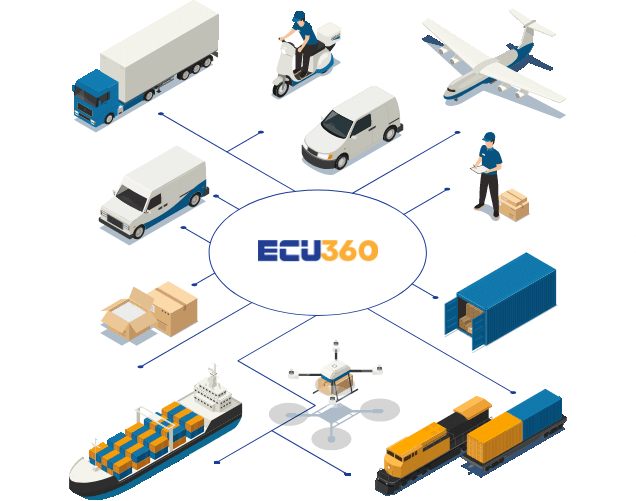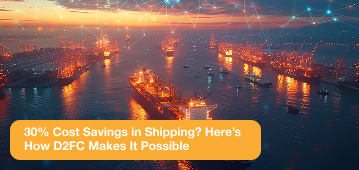The Ultimate Guide to Less Than Container Load (LCL) Shipping: Definition, Benefits & Drawbacks
Tags: LCL Freight Shipping, LCL Logistics, LCL Ocean Freight, LCL Shipping, Less than container load
15-March-2022
Resources > Blog > The Ultimate Guide to Less Than Container Load (LCL) Shipping: Definition, Benefits & Drawbacks
The Ultimate Guide to Less Than Container Load (LCL) Shipping: Definition, Benefits & Drawbacks
International ocean freight services provide businesses with two shipping options: full container load (FCL) shipping and less than container load (LCL) shipping. In a previous article, we have already discussed what FCL is and when businesses should opt for LCL. This article discusses LCL and what businesses can expect when choosing this shipping option.
What is LCL shipping
As the name suggests, LCL(Less Than Container Load) is a method of shipment where the business has less load than the container can hold. In the FCL option, the business pays for the entire container even if there is space in the container. In this option, the transports use the free space to store other customers’ cargo. As a result, the business only needs to pay for the volume of space they have used.
When should a business use an LCL shipping and Logistic option?
- When the shipping volume and weight is low
LCL shipping is ideal when the total volume of the cargo is low. Ocean freight transport rates are calculated based on the total volume and weight of the shipment. Most services provide quotations per 1000 cubic metres. If the total shipping volume and weight are low, the business can opt for the LCL option. In FCL shipping, the business will have to pay for the entire container even when they are not using the space, which is not conducive to the business. - When the product is not expensive
FCL shipping is ideal for delicate, hazardous, or expensive products. However, the LCL option is more economical if the transportation is for relatively cheap or inexpensive products. LCL option can be used to transport medium hazard products such as compressed gaseous and aerosol cans. - When the delivery deadline is not specific
LCL shipping allows transporters to pack cargo of other businesses in the same container. As a result, transit takes time since the cargo needs to be sorted. This can be time-consuming. However, if the business does not have a specific delivery date set in mind or has no rush in getting the cargo, they can opt for LCL shipping, saving money.
Using this technique, businesses can ensure that they pay less and have their products moved from one port to another at the fastest pace possible. In peak seasons where there is high demand for cargo transport and high prices, businesses can use the LCL shipping option to save money. There are several other advantages of this shipment option.
Benefits of LCL shipping
- Affordable: LCL shipping was designed to ensure ocean freight service could transport small cargo. Since the business does not use the entire container, they do not need to pay for it. This means LCL shipping is much cheaper than FCL shipping. Businesses that want to transport goods while being economical can use this option in shipping.
- Low risk: LCL shipping is relatively low risk. Many suppliers require businesses to purchase in bulk simply because they choose the FCL option. This increases the risk of cargo getting lost in transit. However, businesses can buy raw materials in smaller quantities with the LCL option.
- Small business-friendly: LCL is the ideal option for small businesses that need only to transport small quantities. In FCL shipping or air freight, the charges for transporting these goods would be astronomical, making the shipment expensive for the business. However, with LCL, the business can complete the shipment without the added expense.
Drawbacks of LCL shipping
- LCL shipments require loading and unloading from containers, resulting in a few extra days added to the journey.
- LCL shipments are pricier per cubic meter compared to FCL, occasionally even doubling the cost.
- Customs delays affecting other shipments may lead to corresponding delays in your goods.
- Handling LCL goods more frequently raises the likelihood of damage or loss.
Key Phases of LCL Shipping
There are four main steps in LCL shipment:
- Booking of shipment: In this stage, you select the shipping partner and provide them with the details of the cargo you want to ship, including weight, dimensions, content, etc.
- Consolidation: This is when the cargo is packed inside the container. The container is adjusted in weight and volume according to the transport requirement. Businesses are provided with a cut-off date by which they need to deliver their cargo.
- Transit: The transit stage includes transit from port storage to the ship. This is also called Drayage. The ship then transports the goods from the port of origin (export) to the delivery port (import).
- Deconsolidation and delivery: The cargo in the LCL container is separated according to the identifiers and customers and delivered to the respective customers. In FCL shipping, since the entire cargo is one customer, the transportation does not take time.
LCL Ocean Freight: Why ECU360?
If you already have a shipping partner that will be available 24×7, you can choose ECU360 worldwide, an integrated digital platform that can take care of all your shipping requirements. ECU360 provides end-to-end global cargo transportation services with technology built and backed by 25 years of global expertise. We provide FCL and LCL shipping services, including customs, warehousing, door-to-door deliveries, and accurate shipping instructions.
ECU360 has a network in over 180 countries and provides comprehensive, safe, and cost-effective ocean freight services. We also have an integrated state-of-the-art logistics platform, ECU360, that provides complete transparency about the cargo location to the respective business owners.
Like
READY TO GET STARTED?
Multiple Modes to Move Cargo
One Platform to Manage All.

Related Blogs

Ecommerce Logistics in 2025: 7 Trends That Will Shape the Future of Online Retail

From Warehouse to Delivery: The Role of Green Logistics in Reducing Carbon Emissions


Comments